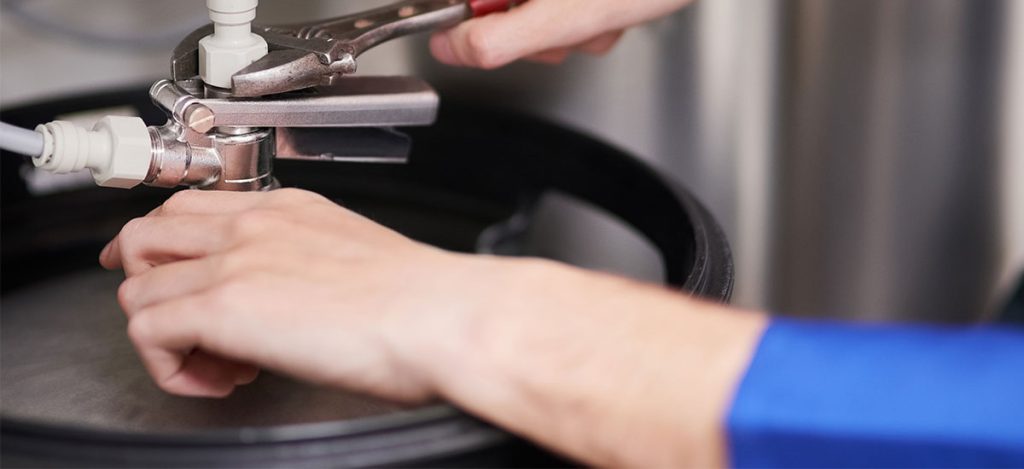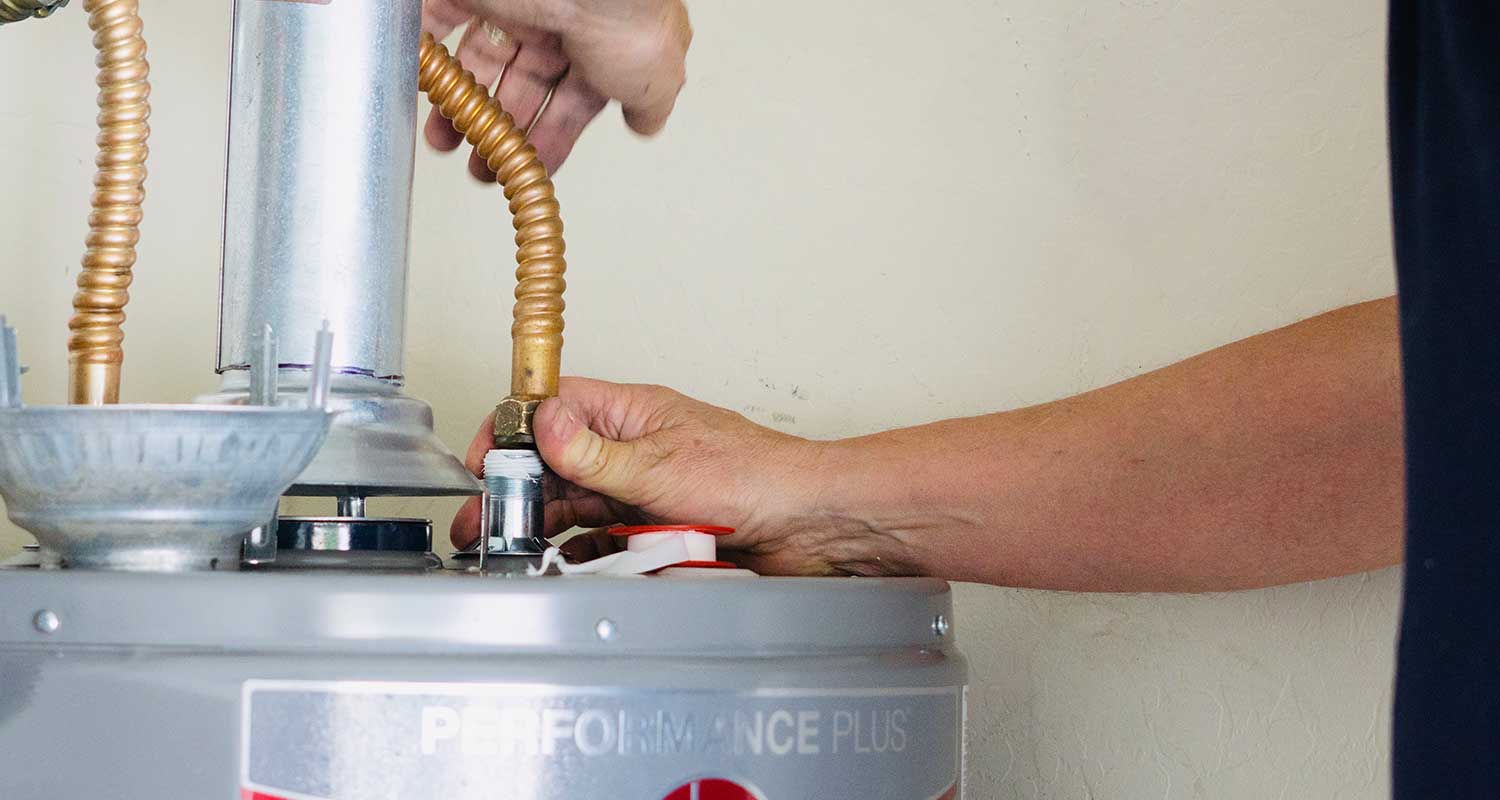
Imagine starting your day only to be met with a cold shower when you expected hot water. For most homeowners, the water heater is a silent workhorse tucked away in a utility closet or garage. But when it fails, the consequences can include water damage, mold growth, and even structural issues in your home.
Identifying the signs you need water heater repair early can save money, preserve your home’s plumbing system, and prevent emergency replacements. This blog post highlights the most common warning signs that your hot water heater is struggling, how to determine if it’s time for repair or replacement, and why acting early is key.
How a Water Heater Should Work
A properly functioning water heater should provide consistent hot water at the right temperature whenever you need it. Whether you are washing dishes, taking a shower, or doing laundry, the water temperature should remain stable without fluctuations.
Water heaters typically last 8 to 12 years, depending on the type, usage, and regular maintenance. Tankless water heaters often have a longer average lifespan compared to traditional tank models. Knowing what’s normal will help you spot early signs that your unit is starting to fail.
Common Signs You Need Water Heater Repair
Inconsistent Water Temperature
Inconsistent water temperature is one of the most common signs that your water heater needs repair. If your water swings from hot to lukewarm or cold, the issue may lie in the heating element or thermostat. For electric water heaters, faulty wiring or thermostat failure could be the culprit. In gas water heaters, a malfunctioning gas valve or pilot light may be to blame.
Inconsistent water means your unit is struggling to regulate heat properly. Ignoring this issue may lead to a complete breakdown and the need to replace your water heater entirely.
Unusual or Strange Noises from the Unit
Do you hear popping, banging, or rumbling sounds coming from your water heater tank? Strange noises are often caused by sediment buildup at the bottom of the tank. This buildup can harden over time, causing overheating and putting stress on the unit.
Mineral buildup not only creates noise but can damage internal components, leading to decreased efficiency. If left unchecked, this issue can shorten the life of your water heater and require early replacement.
Rusty or Discolored Water
Rusty water or metallic-smelling water coming from your taps can indicate corrosion inside your water heater tank. This often stems from a deteriorating anode rod, a component designed to prevent internal rust.
Rust-colored water can also signal corrosion inside plumbing pipes, but if it only occurs when using hot water, the source is likely your hot water heater. This is a good sign that your aging unit may need to be replaced soon.
Standing Water or Leaks Around Your Water Heater
Water pooling around your water heater is a clear red flag. Even small leaks can escalate into serious issues if ignored. Leaks might stem from a faulty valve, loose connection, or a crack in the tank itself.
Standing water promotes mold growth, damages flooring, and can lead to structural problems. If you see any moisture around your water heater, schedule a water heater inspection immediately.
Low Water Pressure
Low water pressure, particularly when using hot water, can be caused by sediment buildup inside the tank or in the water lines. Over time, mineral buildup clogs pipes and narrows flow, reducing pressure and affecting performance.
This issue is especially common in homes with older units or those without water softening systems. It may also indicate corrosion or clogging inside the water heater itself.
High Energy Bills
A sudden spike in your utility bills, without any increase in usage, could be a sign that your water heater is working inefficiently. When heating elements or burners are struggling due to sediment buildup or age, they require more energy to heat the same amount of water.
Older units also lack energy-saving features found in modern models. Switching to an energy efficient model can significantly lower energy bills and improve overall performance.
Pilot Light Keeps Going Out
For gas water heaters, the pilot light is essential to heating water. If it frequently goes out or refuses to stay lit, this may indicate a failing thermocouple, gas control valve, or air intake issue. Without a working pilot light, your unit cannot heat water properly.
Repeated pilot light issues are a common sign you need water heater repair and may require replacing other components to restore functionality.
Frequent Repairs and an Aging Unit
If you find yourself calling for plumbing services repeatedly, it may be time to replace your water heater. Frequent repairs quickly become costly and may indicate underlying issues with the entire unit.
Most homeowners do not realize that once a unit reaches the 10-year mark, the likelihood of breakdown increases significantly. Replacing an old water heater with a new hot water heater will ensure better performance and help you avoid emergency replacements in the future.
Repair or Replace Your Water Heater: How to Decide

Knowing when to repair or replace your water heater depends on several factors:
Choose repair when:
- The unit is under 8 years old
- The issue is minor, such as a faulty thermostat or heating element
- There are no visible leaks or signs of corrosion
Choose replacement when:
- The tank is leaking or rusting
- The unit is over 10 years old and experiencing multiple problems
- You notice persistent sediment buildup and strange noises
- You want to upgrade to a more energy efficient model
Replacing your old water heater with a modern unit can improve hot water delivery, reduce utility bills, and ensure consistent water pressure. A tankless water heater is an excellent choice for households that want more hot water on demand and better energy performance.
Why Early Detection Saves You Money
Recognizing the signs you need water heater repair early helps you avoid costly repairs and water damage. A simple inspection could reveal a minor problem before it turns into a full replacement.
Regular maintenance, including flushing the tank, checking the anode rod, and inspecting for leaks, can extend the life of your water heater and improve energy efficiency. Most homeowners overlook these small steps, but they can make a big difference in the long run.
Call for San Antonio Water Heater Repair
If your water heater is showing any of the signs listed above, do not wait. It’s only a matter of time before small issues lead to system failure. Whether you have a tank-style unit or a tankless water heater, professional help is the key to restoring proper function.
Reach out today for expert San Antonio water heater repair. Our licensed plumbers at Chambliss offer full water heater inspections, repairs, and replacements using high-quality, energy efficient models designed to fit your household needs.
Frequently Asked Questions
How long do water heaters typically last?
Most tank water heaters last between 8 to 12 years. Tankless models may last 15 to 20 years with proper maintenance.
What causes inconsistent water temperature?
Inconsistent water temperature can be caused by a failing heating element, a broken thermostat, or sediment buildup inside the tank.
What does rusty hot water mean?
Rusty hot water usually indicates internal corrosion, likely due to a deteriorating anode rod or aging tank walls.
Should I repair or replace my water heater?
If the unit is old, leaking, or requires frequent repairs, replacing it with a new water heater is more cost effective and energy efficient.
Can sediment buildup damage my water heater?
Yes. Sediment buildup can cause strange noises, reduced efficiency, and even tank failure over time. Regular flushing helps prevent this issue.
